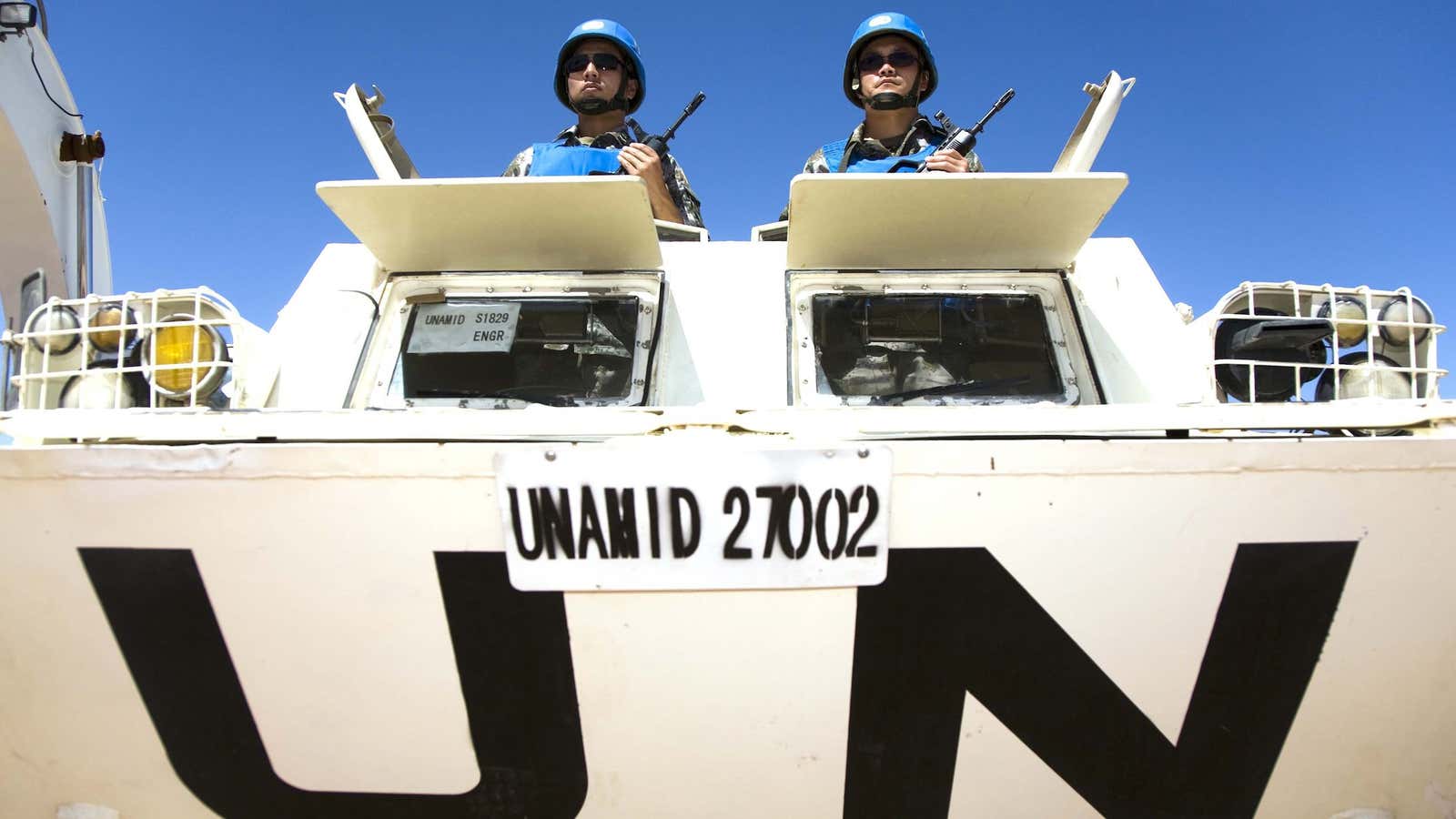Two Chinese peacekeepers were killed over the weekend, during clashes in South Sudan that threaten to plunge the young country back into civil war. The soldiers were on patrol in an armored vehicle near a refugee camp in Juba on Sunday (July 10), when a shelling attack killed them and injured six others, according to China’s defense ministry.
“The Chinese army is deeply shocked and strongly condemn the attack,” the Chinese defense ministry said in a statement. “We are deeply saddened by the loss of a life. We offer our condolences and sincere consolations to the families of the dead and injured.”
Chinese online users were angry at what they called the empty words of the defense ministry’s statement.
“Could we not ’strongly condemn’ every time something like this happens? Whenever I see these words I feel deeply powerless,” one user (registration required) on the microblog Weibo said. “What use is condemnation? Can it return a life? Fight those who have injured us, don’t just condemn!” said another. One user said, “I condemn these four words,” referring to the four word phrase for “strongly condemn” in Chinese—qiangli qianze (强力谴责).
Chinese media have reported that one victim was 22-year-old Lilei from Sichuan province, a former repairman who also owned a cucumber farm. Li had just celebrated his 22nd birthday two days before his death. The other victim, Yang Shupeng, 33, is from Shandong province where he has a wife and a child. State media CCTV posted photos of Yang and Li but the ministry of defense has not confirmed their identities.
China has recently been ramping up its military engagement overseas, shedding its traditional stance of non-interference. Most of its 3,100 peacekeepers stationed around the world are in Africa, where Chinese investment, trade, and other forms of engagement have also grown. Last year, China pledged to increase its peacekeeping force to 8,000 troops and promised to use funds from its $1 billion peace and development fund for such missions.
But deaths like that of Li and Yang in South Sudan, which follow that of another Chinese peacekeeper in Mali on May 31, complicate that commitment. And China’s various interests in South Sudan, where it first began sending peacekeepers in 2006, also muddy the waters.
The state-owned National Petroleum Corp holds a 40% stake in the joint venture that runs South Sudan’s oil fields, which have become a hub for illegal wildlife trafficking. At the same time, China North Industries Group, a Chinese weapons manufacturer better known as Norinco, has sold at least $38 million in missiles, guns, grenade launchers and more to South Sudan, arms that may have been used against China’s own peacekeepers.
Before Sunday’s attack, 16 Chinese nationals had been killed while on UN peacekeeping missions. As well as the outrage on social media, some Chinese users expressed their respect for the fallen, calling them heroes and posting images candles and hands clasped in prayer.
“Even in times of peace there is sacrifice,” said one Weibo user whose comment was liked over 1,000 times. “We should cheer peace and salute the soldiers.”




